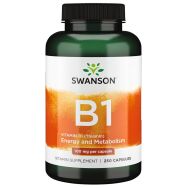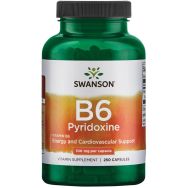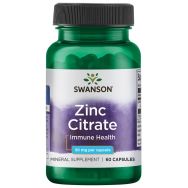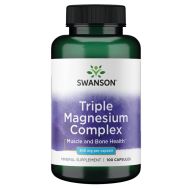Get a head start on your New Year health goals

Are you looking to make 2023 a healthier and more enjoyable year? Setting health resolutions is one great way to stay motivated, stay on track, and reach your goals. Whether you're looking to lose weight, get more active, eat better, or focus on your mental health, creating a plan and setting achievable goals can help. Here are some of the most common New Year health goals, and the supplements that can help you achieve them.
1. Losing weight
Supplements can be beneficial to weight loss, when taken as part of a balanced diet and healthy lifestyle.
- Firstly, they can help to provide essential vitamins and minerals that may be missing from our diets. This can help to ensure that the body is getting all the nutrients it needs to maintain a healthy weight.
- Secondly, vitamins and minerals can help to boost energy levels, which can be helpful for those trying to lose weight.
Some of the main vitamins and minerals that can help with weight loss include:
Vitamin B12 plays an important role in helping to break down fat and convert it into energy, which can help to boost the metabolism. Vitamin B12 can also help to reduce cravings, which can make it easier to stick to a healthy diet.
Vitamin D helps to regulate hormones, which can help to reduce appetite. It can also help to increase fat burning, which can help to reduce overall body fat.
Magnesium helps to regulate blood sugar levels, which can help to control cravings and prevent overeating. Magnesium can also help to reduce water retention, which can help to reduce bloating.
Iron helps to boost energy levels, which can help to make exercise more effective. Iron can also help to reduce fatigue, which can help to make it easier to stick to a regular exercise routine.
Zinc helps to reduce inflammation, which can help to reduce fat storage. Zinc can also help to reduce appetite, which can make it easier to stick to a healthy diet.
Calcium helps to boost metabolism and fat burning, which can help to reduce overall body fat. Calcium can also help to reduce cravings, which can make it easier to stick to a healthy diet.
Finally, Omega-3 fatty acids are important for weight loss. They help to reduce inflammation, which can help to reduce fat storage. Omega-3 fatty acids can also help to reduce cravings, which can make it easier to stick to a healthy diet.
2. Reducing stress
Stress is a physiological response to a perceived threat or challenge, and it is an inherent part of all our lives. It is important to manage stress to maintain a healthy lifestyle and prevent health problems from developing. Supplements can help with our stress management, as they provide essential nutrients that the body needs to stay healthy and balanced. Vitamins and minerals play an important role in stress management as they can help the body cope with physical and mental stress. Some of the main vitamins and minerals that can help us include:
B-complex vitamins, such as B1 (thiamine), B2 (riboflavin), B3 (niacin), B5 (pantothenic acid), and B6 (pyridoxine) are especially helpful for managing stress. These vitamins help the body to produce the neurotransmitters that are essential for regulating mood, such as serotonin and dopamine. B-complex vitamins also help to reduce fatigue and anxiety, and they can help to improve concentration and focus.
Vitamin C is another important nutrient for stress management, as it helps to reduce levels of the stress hormone cortisol. Vitamin C also helps to reduce fatigue, improve mental alertness, and boost the immune system.
Vitamin D is also beneficial for stress management, as it helps to regulate mood and reduce levels of cortisol. Vitamin D can be obtained from the sun or from certain foods and supplements.
Minerals, such as Magnesium and Zinc, are also important for managing stress. Magnesium helps to regulate brain chemicals and hormones, and it can help to reduce anxiety and improve sleep quality. Zinc helps to reduce levels of cortisol and increase levels of serotonin, which can help to improve mood and reduce stress.
Omega-3 fatty acids can also help to manage stress. Omega-3 fatty acids help to reduce inflammation, which can help to reduce stress levels. Omega-3 fatty acids can be obtained from fish oil supplements or from certain foods, such as walnuts and flaxseed.
3. Drinking less alcohol
For many people, alcohol plays a big role in festivities over the Christmas and New Year period. Come the start of the year, many seek to reduce or abstain for at least the first few months of the year. Some of the main vitamins and minerals that can help include:
Vitamin B12 is known to have various roles in the body, including helping to produce energy, maintaining healthy nerve cells, and regulating red blood cell production. Vitamin B12 supplementation can improve mood and reduce cravings for alcohol. A study of alcohol-dependent individuals found that those who received Vitamin B12 supplements were able to reduce their alcohol consumption significantly compared to those who did not receive the supplement.
Vitamin C is known to be an important antioxidant and helps protect cells from damage caused by free radicals. Vitamin C supplementation can reduce alcohol cravings and improve mood. A study of alcohol-dependent individuals found that those who received Vitamin C supplements reduced their alcohol consumption significantly.
Vitamin D is known to be important for bone health and has been found to be associated with improved mood. Vitamin D supplementation can improve mood and reduce cravings for alcohol. Supplementing with Vitamin D in alcohol-dependent individuals showed reduced consumption compared to those without the Vitamin D supplement.
Folate is known to help produce red blood cells and has been found to be associated with improved mood. Folate supplementation can improve mood and reduce cravings for alcohol. Including reduced alcohol intake with folate supplementation.
The minerals Zinc, magnesium, and selenium have also all been studied and found to be associated with reduced alcohol consumption. These supplements may be beneficial for people who are trying to reduce their alcohol intake.
4. Improving your mental health
Mental health is an important part of overall health and wellbeing. Proper nutrition and sufficient amounts of vitamins and minerals can play a significant role in helping maintain our mental health. Many studies have identified a link between lack of certain vitamins and minerals and mental health problems. Some of the main vitamins and minerals that can help us include:
Vitamin B complex is known to be especially important for mental health. Vitamins B1 (thiamine), B2 (riboflavin), B3 (niacin), B5 (pantothenic acid), B6 (pyridoxine), B7 (biotin), B9 (folic acid) and B12 (cobalamin) are essential for the body's metabolism, energy production and neurological functions. Inadequate intake of these vitamins has been linked to anxiety, irritability, depression, fatigue, difficulty concentrating and other symptoms of mental health problems.
Vitamin D is also important for mental health. Vitamin D is primarily produced in the skin when exposed to sunlight, but it can also be obtained from dietary sources. Studies have found that vitamin D deficiency is associated with an increased risk of depression, particularly in men.
Magnesium is a mineral that is essential for the body's metabolism, nerve and muscle function, and energy production. Low levels of magnesium have been linked to depression, anxiety and other mental health issues.
Omega-3 fatty acids are essential fatty acids that are important for the functioning of the brain and nervous system. Low levels of omega-3 fatty acids have been associated with depression, anxiety, bipolar disorder and other mental health issues.
Zinc is an essential mineral that is important for the functioning of the immune system and the metabolism of essential fatty acids.
Selenium is also an essential mineral that is important for the functioning of the immune system and the metabolism of essential amino acids.
Iron is an essential mineral that is important for the transport of oxygen throughout the body.
Vitamin C is important for the functioning of the immune system and for the production of collagen.
Vitamin E is an essential vitamin that is important for the functioning of the immune system and to produce antioxidants.
Low levels of all the above have been associated with depression, anxiety and other mental health issues.
Summary
A balanced diet that includes a variety of vitamins and minerals can play an important role in maintaining our weight, help manage stress, support reductions in alcohol intake and support our mental health. Many of the vitamins and minerals mentioned are presented under more than one resolution, showing how they are important they are in general. Adequate intake of these vitamins and minerals will help support your new you in 2023.
If you have a specific interest or would like to see a particular product or nutrient reviewed, please email your request to info@bigvits.co.uk. Educating our customers in respect to the importance of nutrients and the idiosyncrasies between formulas and products is at the heart of what we want to achieve.











